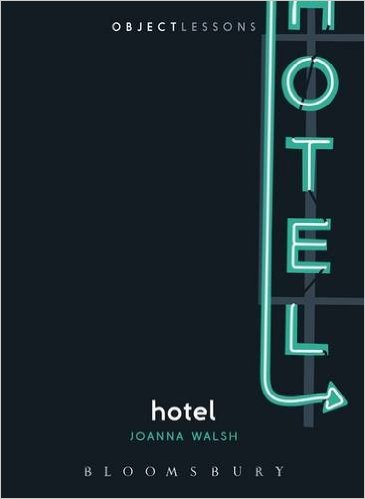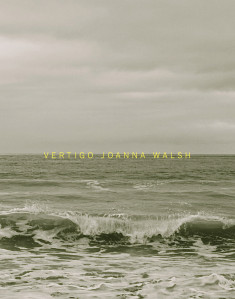Hotel Experience #1: The hotel we spent our honeymoon in was a neo-brutalist contortion of sharp-angled glass panes held together by twisting plastic curves. The furniture resembled debris from video-game spaceships, subtly hidden buttons controlled everything from the do not disturb sign to the water temperature. The hotel brochure alluded to an “Alpine-inspired solution to healthy living” (that means, to you and me, a Spa) where “you luxuriate in the relaxation area, letting your mind refresh itself, rejuvenate your body with a massage featuring hot stones or essential oils taken from plants grown in Alpine meadows.” Except, when we asked the receptionist where this Alpine-inspired meadowland was, we were told it did not yet exist. Nor did the much-lauded “jogging tracks” regarding which we were meant to “ask reception for details”. Every room, according to the architecture firm’s PR blurb, “addresses the fundamental challenges inherent to the site” and provides “the maximum possible vista”, a view of the sea and the beach for every guest. A few days after we leave, the body of a dead boy will be photographed not far from this beach, the visual reminder of the sort of horrors a resort is designed to make you forget. We knew of the refugees trying to cross the very water that was there for us to “relax as we float” and to “cool off on a sunny day”, but we never saw any signs of this humanitarian crisis from our hotel. You had to hand it to them, they had indeed addressed the fundamental challenges inherent to the site.
“There is no plot in a hotel so nothing bad can happen here”, Joanna Walsh writes in her part memoir Hotel, part of Bloomsbury’s Object Lessons series about “the hidden lives of ordinary things” (other books are about everything from dust to shipping containers and refrigerators). Walsh, who worked as a hotel reviewer, uses the hotel as the setting for the breakdown of a marriage, a framework that provides the narrator (though billed as a memoir, readers are invited by the fragmentary format to create some distance between author and narrator, to perhaps experience it as a “fictional memoir” as Anne Carson defined her Beauty of the Husband) with a transient space outside of time, a not-home where she can escape the self out there in the real world, in the real home. She writes: “we went into marriage to fulfil our individual desires (as we had been told we are individuals) but we found ourselves required to be fulfilled by what we found there which is no more than what other people have found. The marriage problem is the same as the hotel problem. I have second-guessed your desires, and those of others, I have made myself into a hotel.”
The hotel for Walsh is an exemplar of the generic city as defined by the architect Rem Koolhaas who wrote of the airport as the ultimate generic space. “Once manifestations of ultimate neutrality, airports now are among the most singular, characteristic elements of the Generic City, its strongest vehicle of differentiation”, Koolhaas writes. For Walsh, too, the hotel has gone from neutral to singular: “The old ‘new’ hotels used to pride themselves that every room was the same; the new ‘old’ hotels boast that every room is different”. Later, she writes: “It feels personal, but it’s not your personal”, reminding the reader of the most intriguing premise of the memory implant technology in Paul Verhoeven’s Total Recall, wherein the salesman asks Arnold Schwarzenegger’s character “What is it that is exactly the same about every single vacation you have ever taken? You! You’re the same. No matter where you go, there you are. It’s always the same old you. Let me suggest that you take a vacation from yourself”. The hotel, in a similar manner, provides an escape from the self, where the room is magically restored to its original state every day — like the mythical Sæhrímnir of Norse mythology — a space where the guest is encouraged to indulge in a performance, to embrace the impersonal. “We must live up to our hotels”, Walsh writes, “We’re on display; we’re what’s being sold”.
The author Kate Zambreno often expands on the notion of writing that exists in the margins, using traditionally non-literary forms (the diary, the scrapbook, the LiveJournal) to construct an alternative literature from that which has been historically dismissed as personal, superficial. Similarly, Walsh weaves her memoir not from traditional strands of straight narrative, but in the form of a collage from scraps that includes quotes, imagined dialogue between Freud, Heidegger and Mae West (i.a.), TripAdvisor comments, postcards and deconstructed hotel PR lingo. The fragmented nature of the text echoes the work of Maggie Nelson, Carole Maso and at times even Kathy Acker, but in contrast with the “messiness” that Zambreno attaches to a lot of similar texts, Hotel is a clean, almost geometric work, the breakdown of the personal sphere encased in the sanitised environment of the hotel. In this Hotel (as well as Walsh’s short story collection Vertigo which was published almost simultaneously) has a kinship with a French literary tradition: her description of space, both in Hotel and stories such as “The Children’s Ward” and “…And After” are reminiscent of Alain Robbe-Grillet’s earlier work (I am thinking especially here of his La Jalousie where an infidelity and breakup is alluded to only by the description of objects, the very absence of the narrator in the text driving the plot), while Walsh’s series of postcards, an echo of Derrida that build-up to the end of the marriage in descending order, is akin to the countdown of days in Sophie Calle’s wrenching documentation Douleur Exquise. Steph Cha, in the Los Angeles Times, makes reference to an “exhilarating speed and concentrated force”, which adequately captures the sense of control that Walsh exerts over the moveable parts of her work, where the various texts she uses never feel less than the part of a unified whole. While Heidi Julavits laments in her New York Times review, that “Hotel has no platform for intimacy”, this lack of intimacy feels very much intended, part of the desired effect, much in line with the French tradition but also reminiscent of the intangible narratives of Ann Quin, where sentimentality is eschewed in favour of a more theoretical deconstruction of the self.
Hotel Experience #2: For my birthday my wife, then girlfriend, took me to the brewery of my favourite beer (favourite because there are pink elephants on the bottles, on the beer glasses, on everything) in conjunction with which she booked us a night in a boutique hotel in a picturesque town near the brewery, an 18th century mansion repurposed as a luxury bed and breakfast. We were given slips of paper on which to write our preferred temperature for boiled eggs which, once we wrote down a number, we were instructed to amend in order to take the city’s altitude into consideration. There was a bowl of rose petals by our bathtub, 18th century portraits on the wall and opulent furniture. We were aliens here, feeling as misplaced as the astronaut in Kubrick’s 2001 who enters a wormhole and emerges in a neoclassical bedroom. All the hotel’s documentation was written by hand in a studied cursive, every doorknob had developed its own personality from centuries of use. In need of a suitable soundtrack to our room, I downloaded the minuet from Boccerini’s String Quintet in E major, Op. 11 No. 5, and we spent our stay pretending to be aloof aristocratic characters in a Molière play as we waltzed about in this space we were never intended to inhabit.
The stories in Vertigo loop and echo, narratives told by characters defined not by a strong sense of self but rather by their relationships: motherhood, marriage, the perception of others. “I was always too young. And now I am too old”, the narrator of “Fin de Collection” states, alluding to the self as something never fully realised, or captured, requiring the presence of an observer in order to exist. “To other people, perhaps, I still look fresh: to people who have not yet seen this dress, these shoes, but to myself, to you, I can never re-present the glamour of a first glance. To appear for the first time is magnificent”, this first story ends. That Vertigo begins with “Fin de Collection” is a nice touch, as it is the same story that concluded Walsh’s first collection Fractals (the two collections share four stories, though my personal favourite from Fractals, “Femme de Maison”, is sadly absent), thus presenting us with the feedback loop that fractal patterns contain, a formal hint that Walsh’s works are part of a dynamic whole.
Such descriptions may make Walsh’s work seem overly theoretical, which would belie the pleasures that can be found in virtually every sentence. One of the singular joys in Walsh’s prose is how she questions and twists language systems until familiar words and expressions become uncanny, portals to a stranger world, as when she describes the state of being drunk as “something that happens to you, like a glass of water, and that happens in the past tense, even as you are drunk in the present, as the action taken to provoke the state was taken in the past. You drink and then you are drunk.”
Though there is a sense of anxiety inherent in Hotel (see Walsh’s description of “the eternal hotel-room question”: “what am I allowed? Should I pull the curtains — is there a cord? How do I control the air-conditioning? What is the WiFi password? Can I open this window?”), it remains a controlled environment, outside of which this question — what am I allowed — becomes much more fraught. In Vertigo the anxiety is more explicit as characters are forced to navigate the real world which the narrator of Hotel avoids at all costs, as the outside world is a space “where what was expected […] was less formalised, if more rigorous. There, if anyone gave […] anything, something would be expected in exchange, though there was never any tariff fixed to the back of the bedroom door, along with instructions for escape”. There is a beautifully recursive section in “Vagues” where a character is fretting over his inability to get served, anxious that he is facing the window and not the restaurant, blaming the waitress for being insufficiently attentive, then shifting the blame to the management for employing insufficient staff during the summer season and so on. It’s a perfect encapsulation of a common thought process, a level of self-awareness that paralyses more than one character in these stories. In this, Walsh’s characters sometimes resemble those of David Foster Wallace (whose Infinite Jest was famously constructed as a “lopsided Sierpiński gasket”, another fractal), caught in prisons of their own relativism.
In the heartbreaking highlight of the collection, “Online”, where the narrator has discovered her husband is flirting with other women on the internet, she attempts in vain to start a conversation, but knows her husband too well for neither questions nor answers to be of any interest: “Having lived with him for a number of years, I already know what my husband likes for breakfast, and this is where the women online have the advantage of me: they do not yet know what my husband likes for breakfast and so they can ask him what he likes for breakfast and, in that way, begin a conversation”. Koolhaas writes, in his essay on the generic city, that identity is “like a mousetrap in which more and more mice have to share the original bait, and which, on closer inspection, may have been empty for centuries”. This fractured sense of self and identity is a common thread running through both Vertigo and Hotel. Once stripped of markers of belonging: of mothers, children, spouses and homes, what is it that remains of us?
Hotel Experience #3: On a business trip in a business hotel, I lay on the bed for hours, fully dressed. I had recently gone off my anti-anxiety medication and was experiencing what was turning out to be rather severe withdrawal symptoms. The pillows were softer than any pillow I would probably ever own, the room was in every way perfect, and yet I felt unable to experience any joy at being there. I began thinking of the country’s notorious slave labour that had led to the construction of this hotel, wondered how many lives had been lost in erecting this giant glass structure in order for businessmen to bring high-end escorts here after their meetings, and for expats to indulge in all-you-can-drink brunches at one of the many award-winning restaurants. I’d had the Do Not Disturb sign on for so long the hotel’s staff felt compelled to disturb me, to check that I was OK, that there was nothing that I needed. I have everything I need, I told them. That was the problem (this I did not say out loud). In attempting to be the perfect home, the hotel had managed to make itself oppressive to me. I wanted to go home, to the imperfections, the mess, the comfort, but home was three days of inane meetings and eight economy-class hours away. In the end I emptied my suitcase all over the impeccably vacuumed carpet (I owned at this point neither a vacuum nor a carpet): socks, underwear, shirts scattered everywhere. That’s better, I said to no-one in particular.
Joanna Walsh has been published by Dalkey (Best European Fiction 2015), Granta, Salt (Best British Short Stories, 2014 and 2015), and others. A collection, Fractals, was published in the UK in 2013 (Blue Pavilion/3:AM Press). She writes criticism for The Guardian, The New Statesman, and The National (UAE). She is fiction editor at 3:AM Magazine, and she runs #readwomen, described by the New York Times as “a rallying cry for equal treatment for women writers”. She is also an illustrator. Vertigo is published by Dorothy (USA) and will be forthcoming from & Other Stories (UK) and Tramp Press (Ireland) in 2016.
Agri Ismaïl is an Iraq- and Sweden-based writer whose work has appeared in The White Review, 3:AM Magazine, Vol. 1 Brooklyn, Al Jazeera, and the Swedish journal Glänta among other places.



